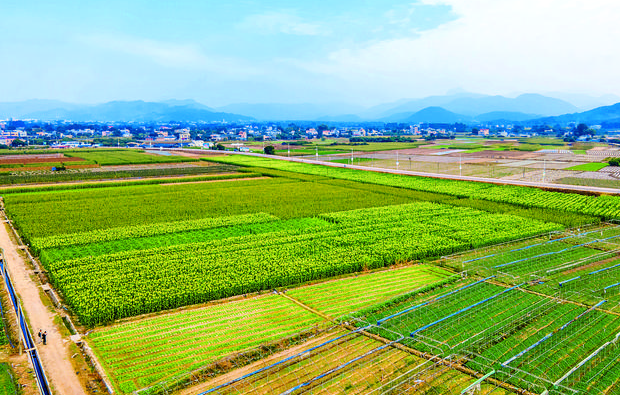Add:1506,Tower West,Jinrun International Plaza,No.85 East Nanxijiang Street,Jianye District,Nanjing,China,210019
Tel: 025-58866358
025-58933315
Fax:025-58867358
E-mail:info@bonagrain.com

China has witnessed a decline in environmental penalty cases since 2018, driven by the rigorous enforcement of the 2015 revision of the Environmental Protection Law, renowned for its stringent provisions, according to the Ministry of Ecology and Environment.
Dubbed by national authorities as a law with real teeth, the revised legislation incorporates four punitive measures to combat environmental infractions: levying daily fines, implementing asset sealing and seizure, restricting or suspending production, and enforcing detentions.
At a news conference on Tuesday, Zhao Qunying, head of the ministry's law enforcement bureau, stated that since 2015, environmental law enforcement officers nationwide have handled more than 190,000 cases related to these measures and other criminal offenses under the revised law.
Additionally, they have processed roughly 1.3 million cases involving environmental administrative penalties, with total fines amounting to approximately 86 billion yuan, he added.
Zhao highlighted the role of the revised law in deterring environmental violations. During the 13th Five-Year Plan period (2016-20), enforcement personnel handled 833,000 environmental penalty cases of various types, marking a 1.4-fold increase from the previous five years.
"Since 2018, with even more rigorous enforcement of the Environmental Protection Law, there has been a notable rise in awareness regarding environmental compliance across all sectors of society. Companies have consistently ramped up their environmental governance efforts," Zhao said.
"This has resulted in a decline in environmental penalty cases," he added.
Last year, more than 80,000 cases of environmental penalties were imposed nationwide, representing a 66 percent drop from 2017, the year such cases peaked, the official noted.
Zhao also highlighted remarkable progress in leveraging information technology to uncover environmental violations, which has significantly improved law enforcement efficiency.
In water environment management, for instance, the ministry has applied artificial intelligence and big data technologies to analyze data from automatic monitoring facilities, satellite remote sensing and online sources.
Thanks to these initiatives, Zhao said the ministry has provided local authorities with 769 precise leads regarding water-related environmental violations, 359 of which have been resolved.
Some local authorities have also established intelligent environmental supervision platforms to facilitate law enforcement.
Tangshan, Hebei province, for example, has integrated 13 types of data resources, including automatic monitoring and power consumption, into such an intelligent platform. Currently, 76 percent of environmental violations in the city are identified through the platform, he said.
Zhao pledged continued efforts by the ministry to enhance remote supervision through technological innovation.
"This approach can greatly improve the precision of law enforcement, alleviate the burden on grassroots personnel and minimize disruptions to companies," he said.
Reporter: Hou Liqiang


